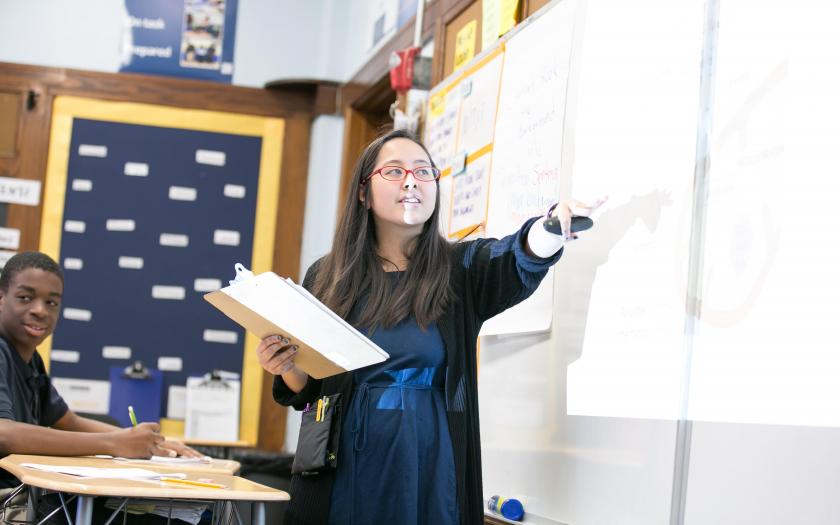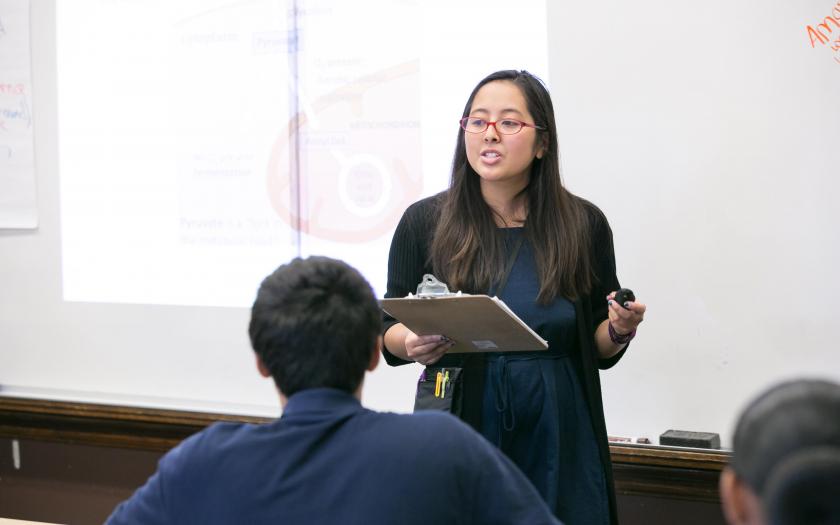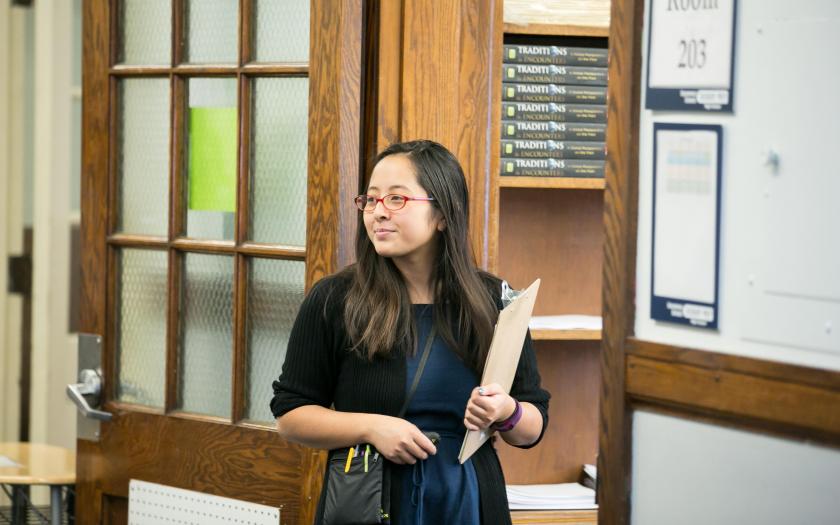September Alumni Spotlight - Regine Rosas '17
Regine Rosas '17 realized early in her Brown career that she wasn't going to take the traditional path of a biomedical engineer. "I did a lot of science competitions in high school, so when I came to Brown, I was really interested in continuing to study biology and physics," she says. She enjoyed the in-depth nature of the engineering core, but realized as she started to take upper-level classes that she didn't want to work in biotechnology. It was then that her work as a tutor at Hope High School through the Swearer Center's STEMS program became surprisingly relevant. "I really liked being in the classroom and talking about physics, so I applied to education-related internships my sophomore year," she says. She was a physics TA, and enjoyed helping with the labs and other hands-on projects.
As her Brown career continued, Rosas deepened her interest in teaching: "The following summer, I did another fellowship that incorporated more teaching. Then I got hired senior year to teach biology at a charter school in Boston." Even knowing that she wasn't going into scientific research, she enjoyed continuing to take classes towards her BME degree. "I think something that was good about knowing that I wanted to go into teaching and not into industry was that when I was taking [upper-level engineering electives], I really tried to focus on those learning aspects. Now, I'll be in class, and a kid will ask a question, and I'll be like, 'Oh, in my biomechanics class I learned about bone structure' or I'll know the techniques used to make prosthetic devices." Her senior year, she took a Cell Physiology class. "I could tell there were some people there to fulfill a requirement," she says. "But I was able to focus on the learning and absorbing of information, and just being curious. It was a bit of a different perspective to be coming from."
Rosas studied abroad in London in her junior spring. "I was so happy to be abroad -- it was really interesting to see how they teach engineering in other countries. There were no problem sets, just two labs and a final, and that was it." She likes the room Brown engineering gives students to collaborate and work with others. "In my first year, I thought I could do problem sets by myself and I really should have learned to work together with other people. That environment is more reflective of how the workplace is, and it's healthier, because it keeps you at a better regimen," she says.
She also did research at Brown for three years. "I learned a lot of lab techniques there that have come into application a lot while teaching about lab safety," she says. "When my students ask why they need to wear long pants or use pipettes, I can tell them about the motor skills they'll need to practice for college. It's been really cool to go back to the basics and see how important they are when applied to advanced lab techniques."
Rosas spent her first year after college working at a charter school in Boston teaching high school biology. "It was really tough, but the first year of teaching is tough for pretty much anyone," she says. "Starting to work was very different from college life, because you have so much free time in college, but when you're working, it's a very routine schedule. I actually struggled a lot at Brown to use all my free time wisely, so that actually worked really well for me." Although some of her friends worked jobs where they rarely interacted with people at work, she enjoyed talking to many people every day. "I think the best part of teaching is that I talked to so many students, and they really helped me through the first year. Things would be really hard, but I would always want to be there for the kids, because they would give me a fresh start every day. Even if I had a bad day, they would forget and bring something new into the classroom every day."
She is now pursuing a masters in secondary science education at UCLA. After acquiring such a strong content background studying BME at Brown, Rosas wants to focus on education. "I'm really excited that I didn't go to grad school immediately, because I know a lot more about teaching now, and when I start grad school it's going to be really hands-on."


